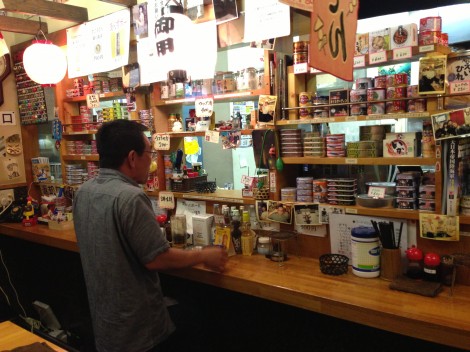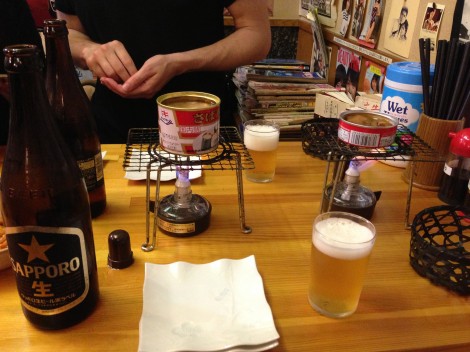I spent a year in Japan during my studies at the university. From 2008 to 2009 I was at Kwansei Gakuin Daigaku in Nishinomiya (between Osaka and Kobe). I had great time there, but Japanese learning was kind of slow at first. All the exchange students would group up, we were put in this unfamiliar atmosphere and so we needed English (or German, or French… whatever people spoke at home) to calm down again.
Going to a foreign country to stay for a while is an interesting experience, but not without difficulties. Some people learned incredibly fast, others not so much. Looking back, the ones that were a bit slower with learning spent a lot of time speaking in their native tongue.
The others found an activity they enjoyed and where they had to speak Japanese. For some it was Kendo, for some the tea ceremony, for me it was going out to bars alone and talking with the people there. The Sake helped talking and the guests – usually older men had some crazy interesting stories to tell.
I had some great conversations and a lot of fun learning how to speak like an old man or a Samurai. There are expressions in Japanese that are specific for certain groups of the population. Women and men use different vocabulary in quite a few situations. “Hara Heta” (I’m hungry – literally my stomach is empty) isn’t an expression you’d normally hear from a woman, for example.
Other sounds will make you sound like a medieval warrior and usually cause great amusement in Japanese people.
Apart from the normal curriculum at our university we were each assigned Japanese students, Nihongo Partners, and while they were all very nice, not everyone “clicked” with theirs. Some of them went on to become good friends and the exchange students are still in contact with them. They meet them all around the world. I feel bad about it, but I can’t remember the names of my Nihongo Partners. We would talk once a week, but it was pretty difficult finding topics that both sides were interested in and it stayed on the level of very small talk. Forcing us to speak Japanese for at least an hour or two every week outside of class was definitely a good approach,however. It’s just that it’s way more fun to be forced to speak the language while doing something you’d want to be doing anyway. I always enjoyed a night out with friends so learning some of the vocabulary related to drinking was good fun.
Language learning doesn’t always have to be serious business. Talking in an environment I was familiar with and felt comfortable in (combined with Sake :P) really helped loosen my tongue and that’s still the most important part about practicing languages – speaking.



Leave a Reply